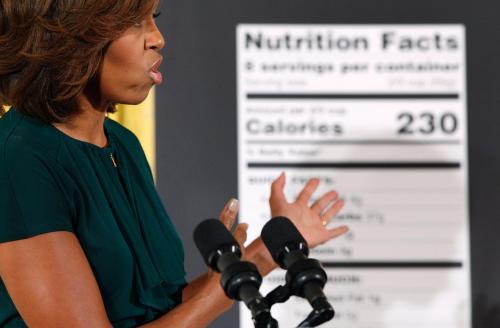I have decided to hang out a shingle as a political consultant. I’ll deal in sure-fire proposals, ones that voters cannot resist, ones that are guaranteed to enhance their popularity.
So, here’s my first. I’ll advise elected officials to tell voters in their states that they are going to help the public lose billions of dollars that are legally theirs.
I know what you are thinking: Keep your day job. Advice like this is transparently crazy. Well, maybe it is. But governors and legislatures around the nation are behaving as if they didn’t think so. Texas Gov. Rick Perry is telling his constituents it will be in their interest to forgo billions of dollars every year—an estimated $9.2 billion in 2022. Florida Gov. Rick Scott is telling his constituents they should bypass up to $5 billion in 2022 that will be rightfully theirs. In Virginia, the governor and the state Senate want to expand Medicaid and pick up as much as $2.8 billion in that year to which the state can easily lay claim, but the House of Delegates says “no.”
What sort of madness is this? Fiscal madness, it surely is. But whether it is political madness remains to be seen.
What is going on here? The answer is that all states have the option of expanding Medicaid. If they do, federal revenues will pay for all the cost at first and never less than 90 percent. Because residents of no state pay more than a tiny fraction of total national taxes, taxpayers in other states will pick up most of the added cost of Medicaid expansion. In fact, even if state officials rebuff the Affordable Care Act’s Medicaid expansion, Texas residents will have to pay for Medicaid recipients newly enrolled in those states that do expand coverage. So even if Texas forgoes additional payments to its hospitals, physicians, nurses, nursing homes, and other health-care providers by refusing to expand Medicaid, Texans will still have to pay for added coverage in other states. And, oh yes, some scores of thousands of Texas residents—a disproportionate share of whom are black, Latino, and uninsured—will be deprived of care that could reduce pain, save their lives, and keep them healthy enough to work or go to school.
Where does the estimate come from that says Texas will be kissing off $9.2 billion by 2022? Simple. That is the estimated difference between the payments that will flow to Texas if the state expands Medicaid and the added taxes that Texans will pay to cover their share—8.6 percent of the national revenues that will be needed to pay for the added spending generated by Texas when it expands Medicaid coverage. One can repeat the same exercise for Florida, Virginia, and each of the other 20 states that have so far been unwilling to expand Medicaid coverage. That is just what Sherry Glied, a professor of economics at Columbia University, did for the Commonwealth Foundation.
The arithmetic is straightforward. The politics are another matter. Turning down billions of dollars that will increase incomes, services, and the health of one’s constituents seems deranged. It is certainly clear evidence, if any remains needed, of the fury and teeth-grinding frustration that Obamacare’s opponents are experiencing. It has caused behavior that can only be described as odd.
If you are still not convinced, consider the proposal advanced by a South Carolina legislator to use state revenues to pay federal fines imposed on state residents who refuse to buy health coverage that will, in many cases, be made affordable by tax credits paid for by the federal government—which is to say, by residents of other states. If South Carolina simply expanded Medicaid to more of its uninsured residents, the state’s taxpayers would pay less than 1 percent of the added total cost of health care reform.
As they say in New York, go figure!
The Brookings Institution is committed to quality, independence, and impact.
We are supported by a diverse array of funders. In line with our values and policies, each Brookings publication represents the sole views of its author(s).



Commentary
Op-edStates Engaging in Fiscal Madness
March 18, 2014